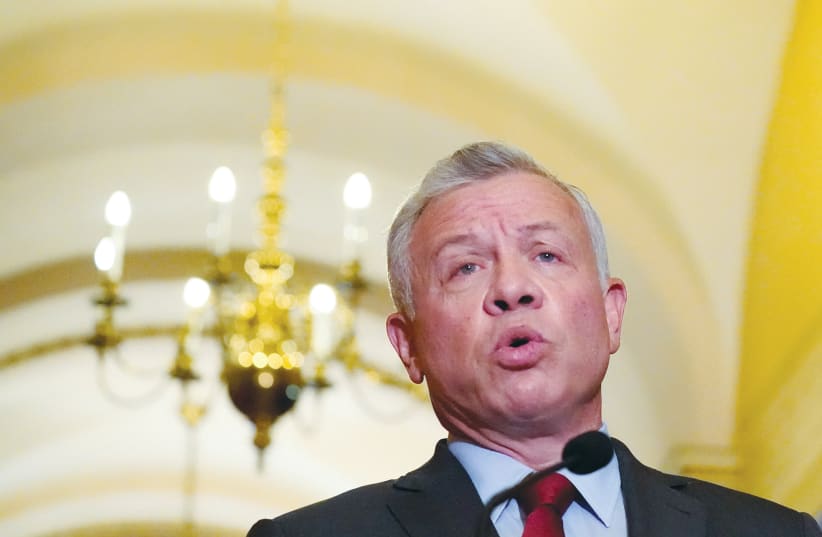Whether he realized it or not, Zakaria was feeding into a long-held fear in Jordan that Israel was scheming to solve the Palestinian problem at Jordan’s expense. The problem was that I never uttered the words that were attributed to me. Having been a diplomatic envoy to Jordan in the 1990s, I knew how careful a representative of the Israeli government had to be when it came to this subject. That I would make a statement of this sort was not only inaccurate but it also underestimated the sensitivity Israeli envoys had for their eastern neighbor.
So where might a top American journalist gain the impression that this was nonetheless Israeli policy – or the policy that I advocated? In 2006, Hamas won the Palestinian elections in both the West Bank and in the Gaza Strip. At the time, the Jerusalem Center for Public Affairs hosted the former Jordanian prime minister, Abdelslam al-Majali. In our meetings, and in public addresses he gave in Washington, Majali proposed a peace arrangement based on a confederation between the West Bank and Jordan. He said that this configuration had the support of the king.
Having been a part of roundtable discussions between Israelis and various Arab parties in Rome in the years that followed, the confederation option was discussed. No one said that this means that Jordan is the Palestinian state. It would be a complete misinterpretation of those discussions to reach such a conclusion. But this mythology persisted that this was what Israel was seeking to implement.
It is possible that this has nothing to do with Middle East politics, but rather with American politics. Over the last four years, CNN was at war with the previous administration of US president Donald Trump. One cannot rule out that somebody at CNN was interested in spreading the story that Israel was pushing the idea that Jordan was ultimately going to be the Palestinian state. It was a dangerous agenda to advance and even irresponsible. But it might explain what Zakaria was up to.
The author is the president of the Jerusalem Center for Public Affairs. He was Israel’s permanent representative to the UN. Subsequently he was appointed to serve as the director-general of the Foreign Ministry.
